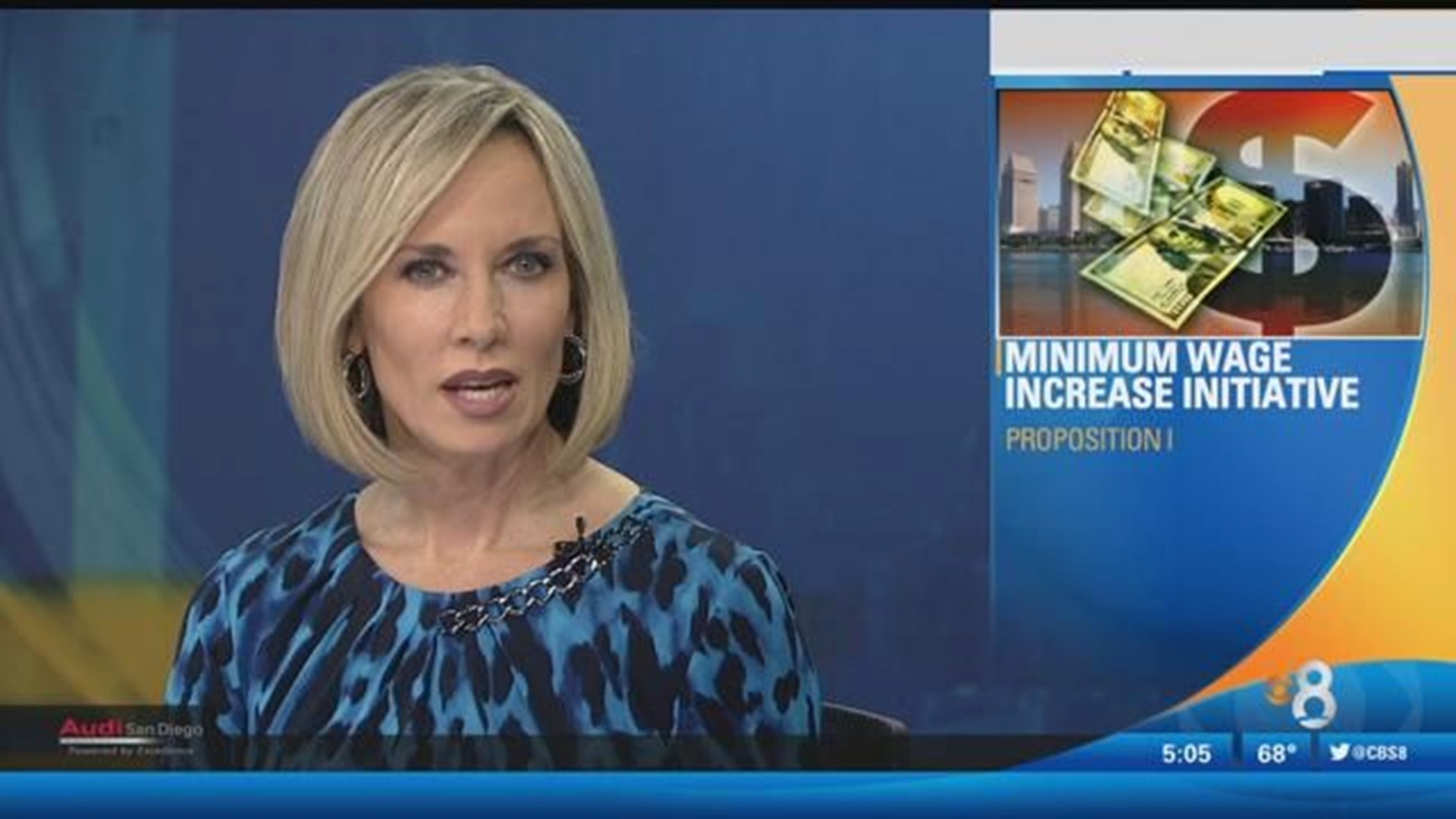View Campaign 2016 election results on your mobile >> http://kfmb.us/electionresultsmobile
SAN DIEGO (CNS) - Approved by the City Council but forced to the ballot by opponents, a plan to raise the minimum wage and extend paid sick leave in San Diego above what's required by the state was passed by voters Wednesday night.
Proposition I, which received more than 63 percent of the votes, was just one of nine ballot measures that went before San Diego voters. The rest were mostly benign amendments to the City Charter.
With the proposition's passage, San Diego's minimum wage will increase almost immediately to $10.50 an hour, and go to $11.50 an hour on Jan. 1. It would also provide five days of annual paid sick leave.
The state's hourly minimum wage is currently $10, and is set to go up to $10.50 in January. It wouldn't surpass San Diego's rate until 2019, if the measure is passed.
The City Council approved San Diego's wage hike about two years ago in an action hotly contested by the area's business community, which conducted a signature drive that forced the issue onto the ballot. This election was the first locally since the referendum qualified for the ballot.
Many detractors said their primary aim was to get voters to decide whether San Diego's minimum wage should be higher than the rest of the state, for a period of time, so their opposition during campaign season has been relatively quiet. They contend that the wage hike would make businesses in the city less competitive by forcing them to pass on extra costs to customers.
Supporters, notably Councilman Todd Gloria, argue that putting extra cash into the hands of tens of thousands of San Diegans will help the economy. The sick leave portion will improve public health since employees won't feel compelled to report to work when they're sick, according to supporters.
"Voters have spoken -- no one who works full-time should live in poverty,'' said Clare Crawford, executive director of the Center on Policy Initiatives.
"Prop. I will immediately improve the lives of San Diego families who work hard and are not paid enough to make ends meet," Crawford said. "One of every four people employed in San Diego will get a raise, and 95 percent of those who will benefit are 20 or older. A third are raising children. Many are veterans. Over half are women."
Proposition H a measure pushed by Councilman Mark Kersey that would establish a funding stream for infrastructure projects in the City Charter -- the city's primary governing document -- also was approved.
The city will now dedicate sales tax growth and savings from reduced pension payments over the next 25 years toward neighborhood infrastructure improvements. Kersey said it will prioritize infrastructure investment as "a core function" of local government.
Opponents contend that his system won't raise nearly enough money to dent a backlog of maintenance and capital projects estimated at several billion dollars and will tie the budgetary hands of future mayors and City Council members.
The Rebuild San Diego measure includes an opt-out provision in case of an economic downturn.
The other proposed charter revisions on the ballot, all of which passed by wide margins, will:
- change the way membership is formulated in a commission that redraws City Council boundaries every 10 years
- revise language on authorizing and issuing bonds to reflect current state law
- clarify provisions on property taxes
- spell out authority to set employee compensation levels and update titles of city executives
- update and consolidate sections on budgeting and appropriations
- improve language on various city financial operations
- repeal the requirement that a close-out audit be performed when city officials die, resign or are removed from their posts
The latter, Proposition G, allows the city auditor to perform such an examination if desired, but the auditor will not have to do so. According to the City Attorney's Office, the auditor reported that no significant findings were made in the 49 most-recent close-out audits.

